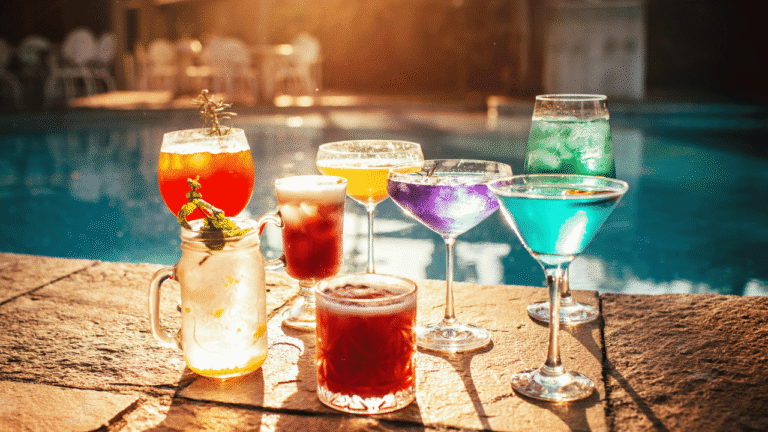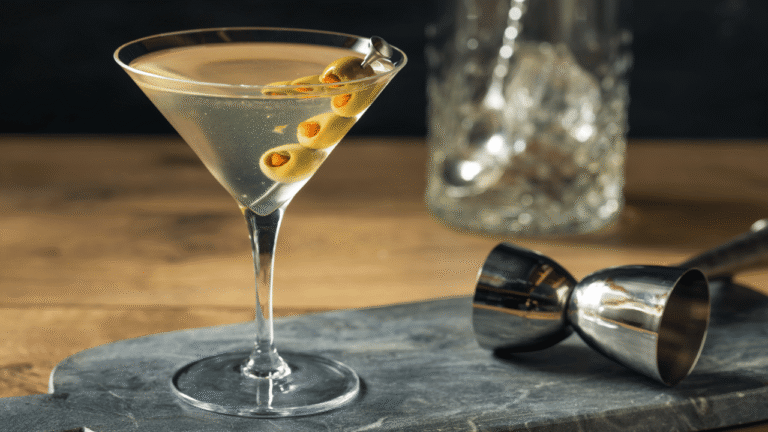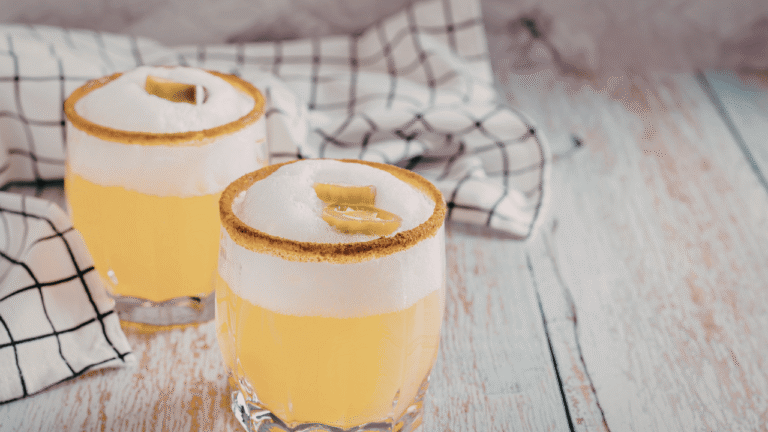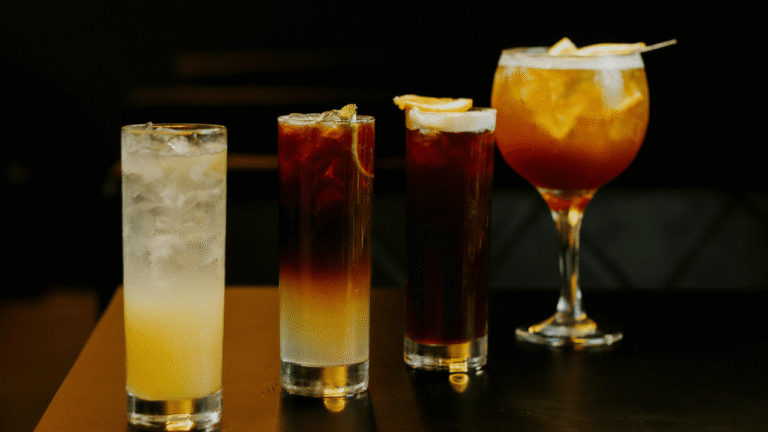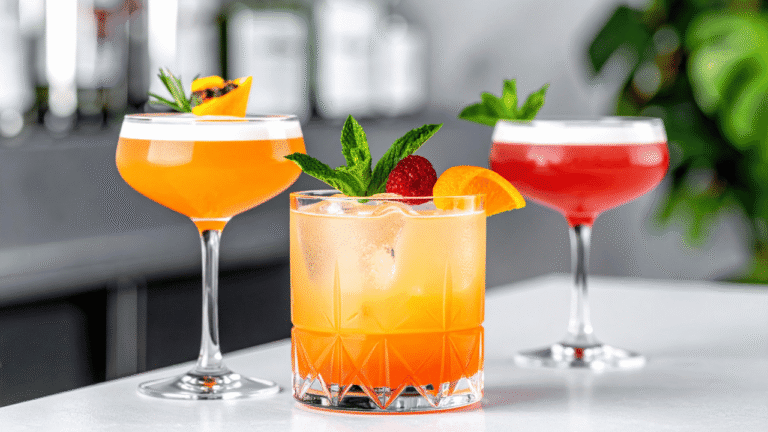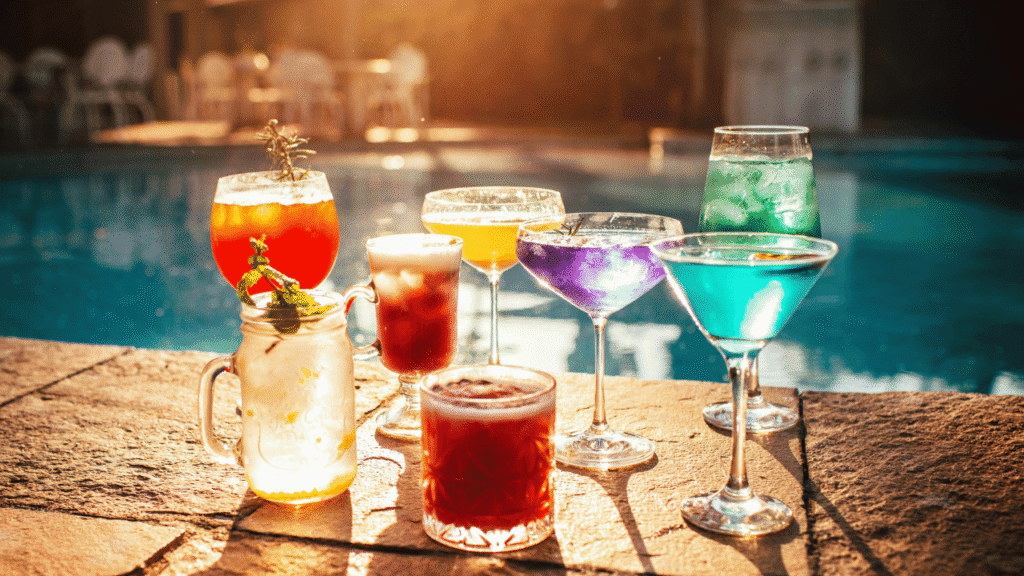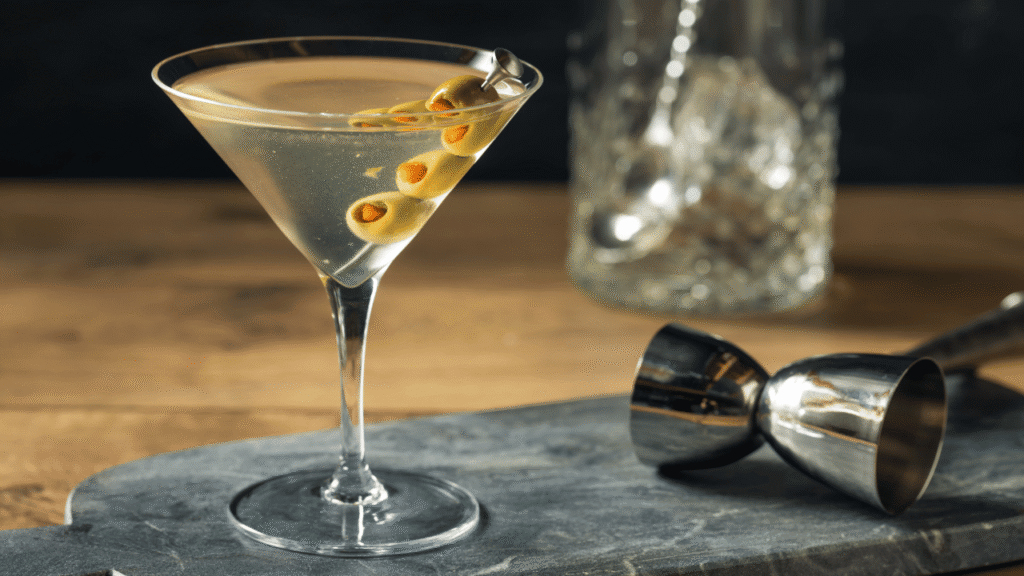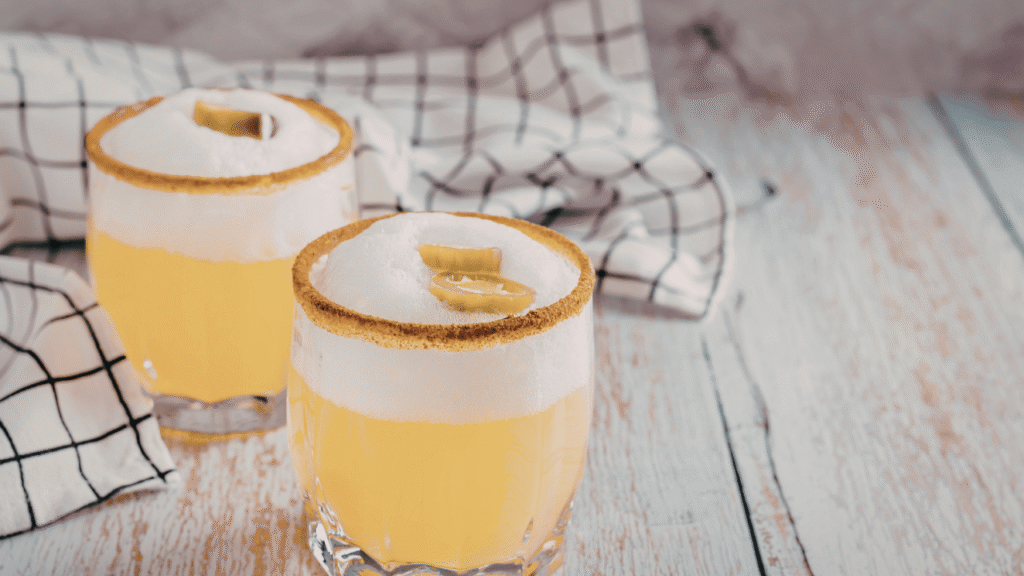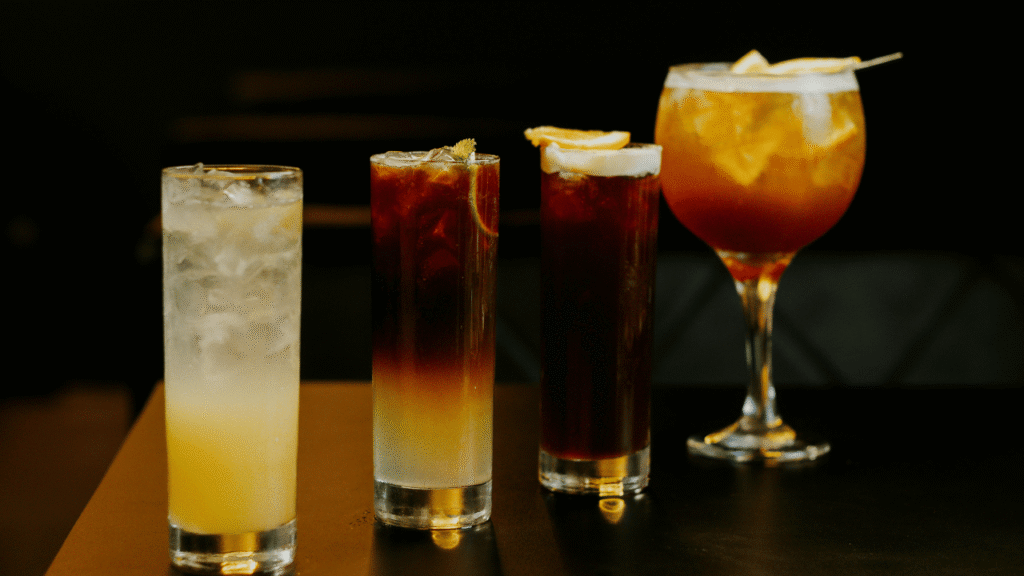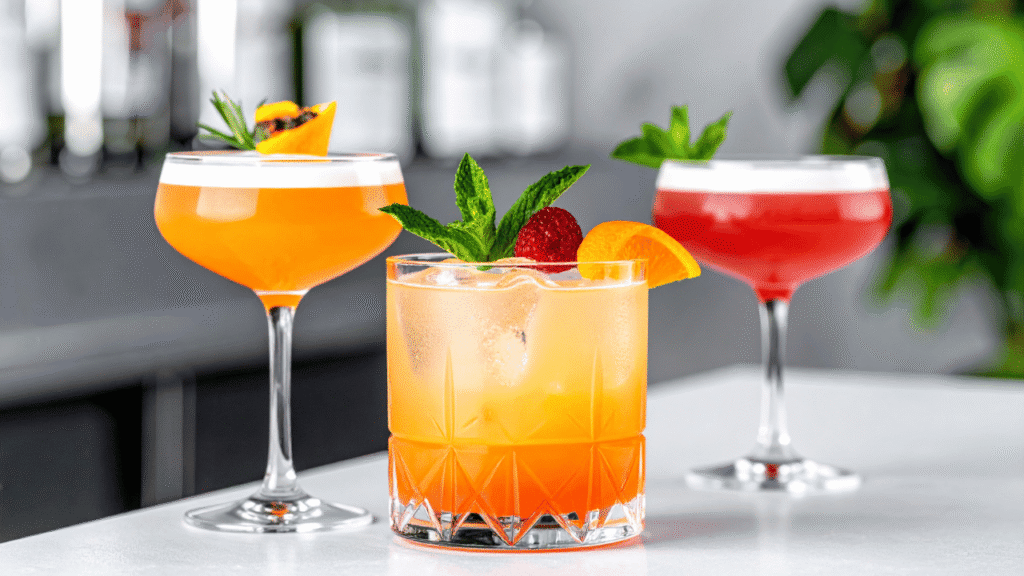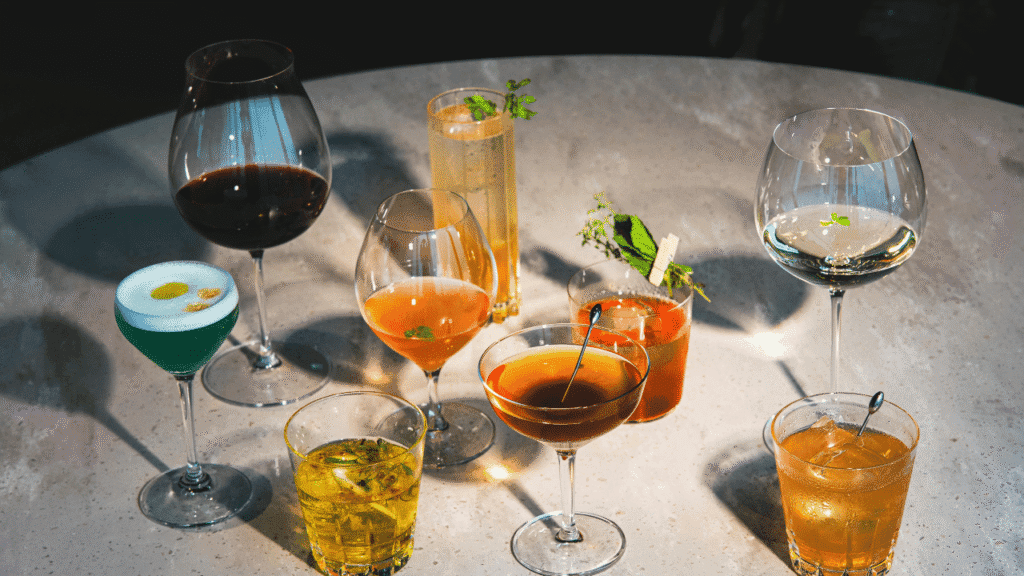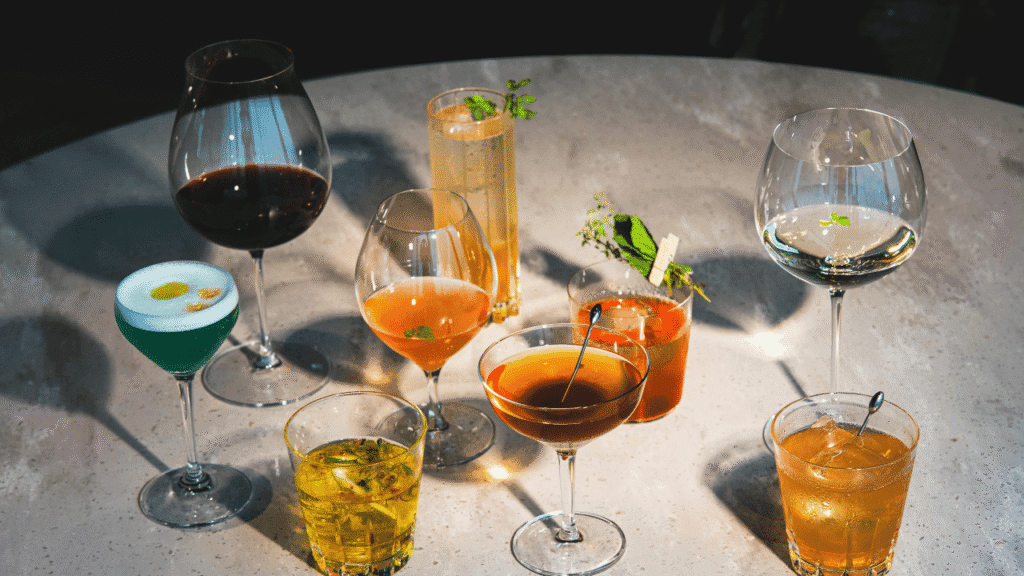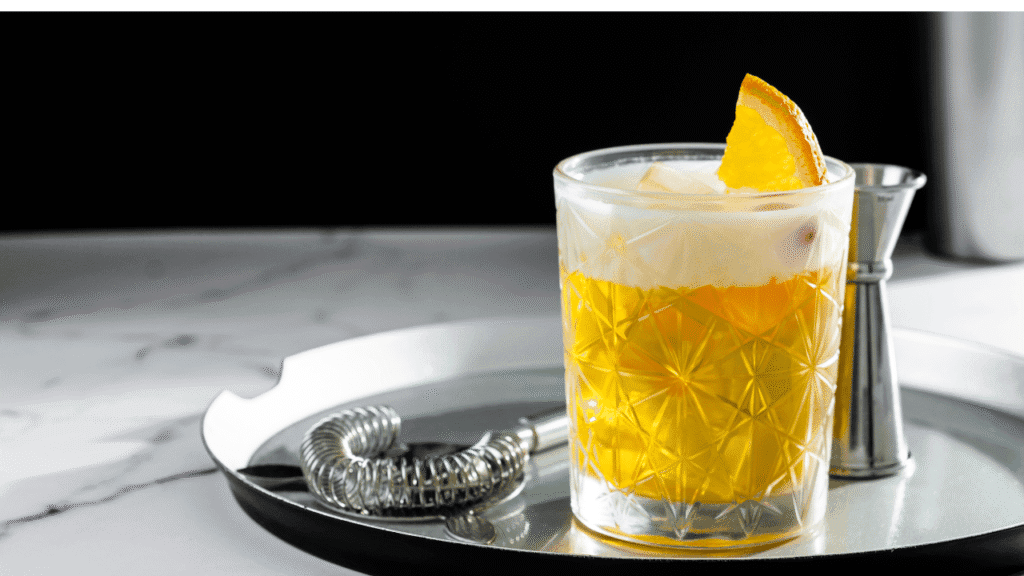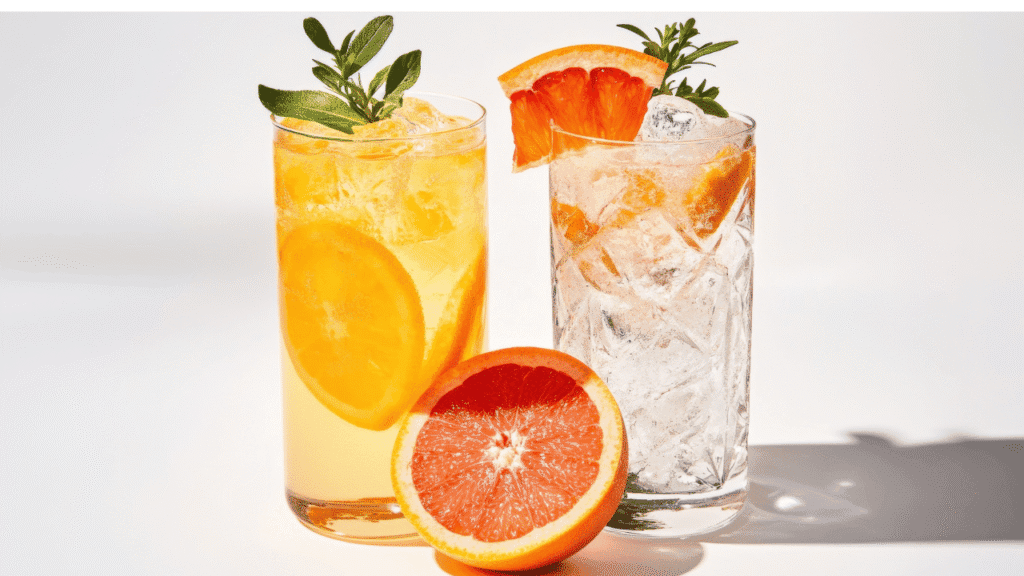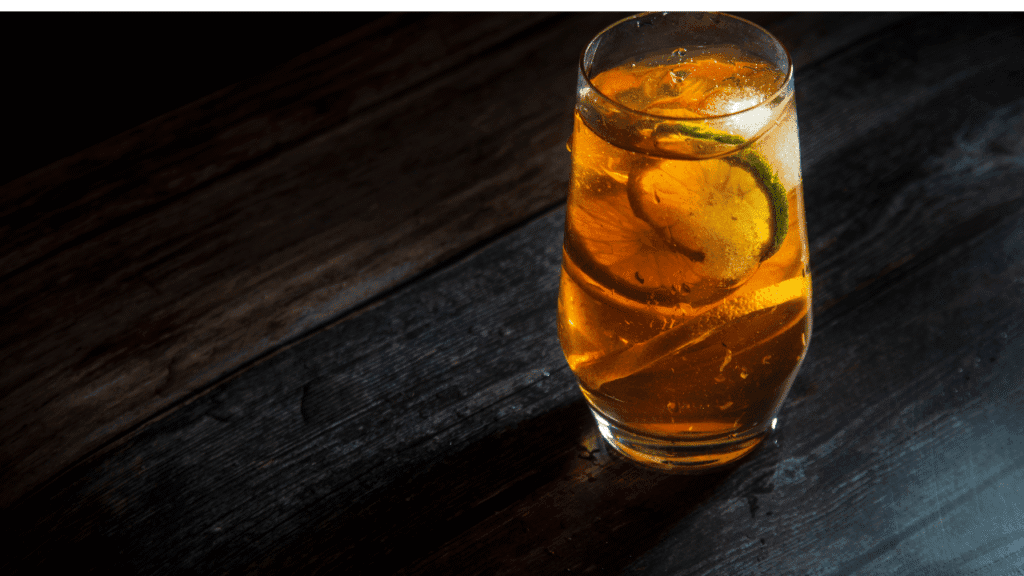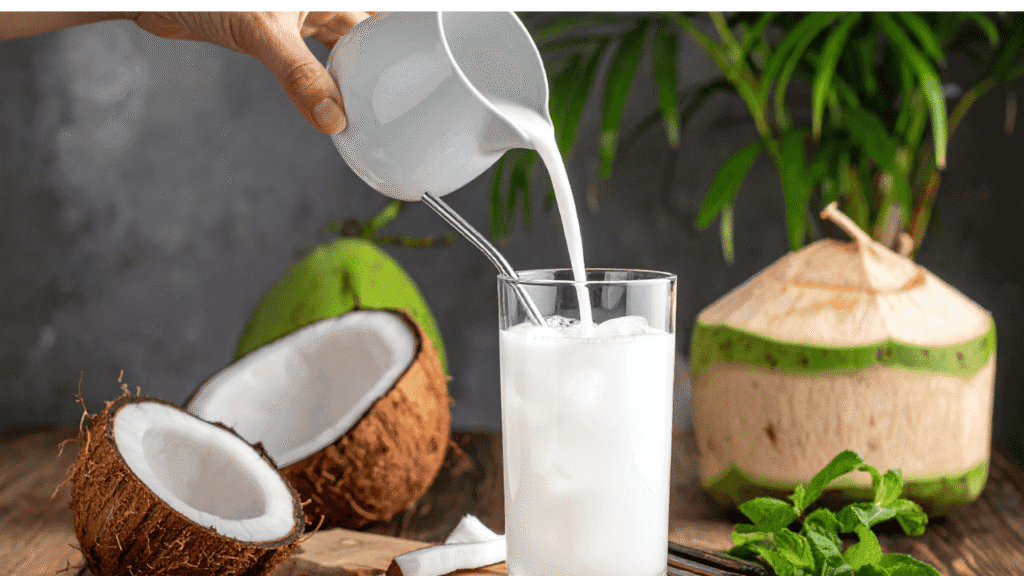The lively debate among whisky aficionados regarding the merits of Scotch in cocktails is as robust as the spirit itself. Delving into the world of Scotch cocktail recipes, one cannot help but notice the dichotomy of opinions. Some enthusiasts rave in their Scotch cocktails reviews about the delightful new flavor profiles that emerge from mixing. Conversely, purists argue that the integrity and distinctive taste of this storied spirit can be compromised when fused with other beverages, such as wine. Finding the middle ground, this exploration sheds light on whether is Scotch good in cocktails through a prism that considers both innovation and tradition.
The art of combining seemingly disparate elements such as Scotch and wine involves a careful understanding of flavor profiles and how they may complement or clash. Is there a place for the robust notes of Scotch in the versatile arena of cocktail mixology, or is it a futile endeavor that tarnishes a time-honored classic? This discussion aims to illuminate the complex interplay of tastes, weigh the benefits against the possible drawbacks, and take into account expert opinions on the matter.
Key Takeaways
- Scotch cocktail recipes open up a gateway to innovative flavors, redefining the drinking experience.
- Discourse on whether Scotch is good in cocktails stems from understanding its distinct profile.
- Critical reviews drive the evolution of Scotch cocktails and their place in mixology.
- Assessing the impact of wine’s tannins and Scotch’s peaty nuances is essential in cocktail creation.
- Expert insights provide a structured narrative behind the pros and cons of mixing Scotch.
- It is crucial to maintain a balance between tradition and experimentation in the world of Scotch.
Introduction: The Intrigue of Blending Wine and Whisky
The concept of mixing wine and whisky has, over the years, sparked debates and mixology challenges among enthusiasts and experts alike. The dynamic interplay between the complex flavors of whisky and the nuanced profiles of wines can either unlock innovative Scotch cocktail recipes or lead to unexpected clashes in taste. The exploration of these combinations is not just about tradition but also the modern art and science of drink mixing.
From the smoky depths of Scotch to the crisp undertones of a white wine, the journey of creating palatable blends is fraught with potential pitfalls and delights. It’s not merely about pouring one spirit with another; it involves a nuanced understanding of flavor balance, alcohol content, and the specific characteristics each component brings to the glass.
As noted in Scotch cocktail reviews, some combinations have been lauded for their groundbreaking taste profiles. However, the success of these mixes often relies heavily on the quality of the base ingredients. A poor choice in whisky or wine can lead to a drink that is less than the sum of its parts, characterized by a bitter taste and harsh aftertaste.
| Ingredient | Characteristics | Common Challenges |
|---|---|---|
| Scotch Whisky | Complex, smoky, and robust | Can overpower lighter wine flavors |
| Red Wine | Rich, fruity, and tannic | May clash with peaty Scotch varieties |
| White Wine | Crisp, acidic, and floral | Risks being overshadowed by strong whisky |
| Rosé Wine | Light, refreshing, and versatile | Delicate flavors might be neutralized |
| Sparkling Wine | Vivacious and effervescent | Carbonation can complicate texture balance |
The challenge lies not just in selecting the right type of whisky and wine, but also in mastering the proportions and understanding how the flavors will marry. This blending is both an art enhanced by creativity and a science driven by technique and precision. For those willing to experiment, the mixology challenges present an opportunity to redefine the boundaries of traditional beverage norms and create something uniquely satisfying.
Whether for a quiet evening or a vibrant party, the allure of devising new Scotch cocktail recipes encourages both amateur and professional mixologists to venture into this intriguing mix of wine and whisky. With each attempt, the drink mixology community continues to learn and adapt, further enriching the vibrant tapestry of the cocktail world.
The Roots of Scotch Whisky
Scotch whisky, often celebrated as one of the world’s premier spirits, continues to captivate global aficionados and casual drinkers alike. Central to understanding Scotch’s universal appeal is to delve deep into its origins and crafting processes, which highlight why it stands out in the vast world of distilled spirits.
Understanding the Distinctive Spirit of Scotland
The journey of Scotch begins in the lush landscapes of Scotland, where the combination of local water, climate, and traditional distillation methods creates a unique flavor profile unmatched by any other whiskies. The meticulous approach to the production process, particularly the extended aging in oak barrels for at least three years, ensures each bottle of Scotch whisky offers a complex, rich, and deeply satisfying taste.
The Role of Grains and Aging Process in Scotch Flavors
The grains used in Scotch—primarily barley but also corn, rye, or wheat—play a critical role in defining its intricate flavors and textures. These grains, coupled with the Scotch-specific aging process in seasoned oak containers, not only fulfill legal aging requirements but also enrich the spirit with distinctive smoky notes, especially when peat is used in the malting process. This detailed attention to grain selection and aging contributes substantively to our understanding of Scotch-based drinks analysis and helps mixologists in crafting some of the best Scotch cocktails.
A profound appreciation of these intricate processes is essential for both connoisseurs and newcomers eager to explore Scotch mixology tips. Understanding these foundations can greatly enhance one’s ability to discern and appreciate the subtleties of various Scotch selections, both in neat forms and when mixed in sophisticated beverages.
Indeed, the economic significance of Scotch reaches beyond mere enjoyment, contributing a substantial £6.1 billion annually to the economy. This underscores not just a cultural or sensory appreciation, but a major economic interest as well. The craft of creating Scotch whisky, from grain to bottle, represents a rich tapestry of history, skill, and economic savvy, all poured into a glass of this celebrated spirit.
| Component | Impact on Scotch Flavour |
|---|---|
| Grain Type (Barley, Corn, Rye, Wheat) | Defines the fundamental character and texture |
| Ageing Process (Minimum 3 Years) | Enhances complexity, richness, and smoothness |
| Use of Peat (in some varieties) | Adds distinctive smoky notes |
| Local Climate and Water | Influences the subtleties of flavour development |
This cherished spirit not only paves the way for innovative Scotch-based drinks analysis but also perpetuates Scotland’s legacy through each bottle shared around the world.
Defining Wine and Its Role in Mixology
Exploring the use of wine in mixology opens a door to a rich world where flavors marry to create something uniquely delightful. When combined with Scotch, wine can amplify the complex flavors associated with traditional Scotch cocktails for beginners and seasoned enthusiasts alike. Understanding the diverse wine types available for cocktails is essential in mastering Scotch mixology tips that offer palatable pleasure and intricate tastes.
The Variety of Wine Types Available for Cocktails
Wine, a globally revered beverage, ranges from robust reds to crisp whites, each offering distinct notes that can enhance a cocktail’s profile. When considering wine for Scotch-based cocktails, both flavor chemistry and visual appeal are important. The pairing choices are vast and deserve careful selection to maintain balance and complement Scotch’s smoky richness.
For those just beginning their journey in Scotch cocktails for beginners, understanding the basics of wine can significantly enhance the mixing experience. Here are some notable wine categories and their common uses in Scotch cocktails:
- Red Wine: Provides depth and complexity, often used in cocktails like a Scotch Sangria.
- White Wine: Adds a crisp acidity that can lighten richer Scotch concoctions.
- Rosé: Offers a floral subtlety, making it ideal for spring and summer Scotch blends.
- Sparkling Wine: Introduces effervescence, elevating a Scotch cocktail’s texture and overall sensory experience.
Integrating wine into Scotch cocktails not only diversifies the flavor spectrum but also contributes to the drink’s aesthetics, making it more appealing to the eye and the palate. It is crucial for bartenders and home cocktail enthusiasts to recognize the proportions and compatibility of Scotch and wine to preserve the integrity of the drinks’ complex flavors.
| Wine Type | Characteristics | Common Scotch Cocktail |
|---|---|---|
| Red Wine | Rich, fruity, and bold | Scotch Sangria |
| White Wine | Crisp, acidic, and refreshing | White Wine Scotch Fizz |
| Rosé | Light, floral, and smooth | Scotch Rosé Spritz |
| Sparkling Wine | Bubbly, lively, and celebratory | Scotch and Sparkles |
Understanding these combinations can guide novices and experienced mixologists alike in creating balanced, flavor-rich cocktails that showcase the best of both Scotch and wine. Through careful selection and thoughtful mixing, anyone can elevate their cocktail game and perhaps even redefine the standards of Scotch mixology tips.
The Art and Science of Mixing Scotch and Wine
The exploration of combining Scotch and wine in cocktails is not only about mixing flavors; it involves understanding the nuanced reactions that occur between the components. Both an art and a science, the success of Scotch cocktails can surpass other spirits when the mixology is based on informed decisions about ingredient interactions and balance.
Chemical Reactions Between Tannins and Alcohol
At the core of mixing Scotch and wine is the interaction between the tannins in wine and the alcohol in Scotch. Tannins, natural compounds present in wine, especially red wine, react with the alcohol content of Scotch to produce either a stunning complexity or an undesirable harshness. This chemical reaction can deeply influence the mouthfeel and finish of the cocktail, proving that Scotch mixology requires a careful approach. Is Scotch good in cocktails? Absolutely, if the balance of elements is right. Emphasizing well-carbonated solutions and acknowledging the effects like those seen in Dave Arnold’s bar work can enhance the cocktail’s texture and taste.
Creating a Balance: Choosing the Right Pairings
Selecting the perfect wine and Scotch pairing is essential for creating harmony in the glass. For instance, a Scotch with peaty notes might pair brilliantly with a rich, full-bodied red wine, as each can stand up to the other’s robust flavors. Conversely, a lighter Scotch could be overwhelmed by too bold a wine. Familiarizing oneself with different flavor profiles from Scotches and wines, similar to tasting various styles of whisky to find one’s preference, can help in crafting better Scotch cocktails.
Moreover, innovation does not end with traditional choices. Modern bartenders, inspired by the likes of Arnold’s Spinzall or liquid intelligence techniques, are pushing boundaries by integrating tools and methods to refine the clarity and flavor profiles of their Scotch cocktails. This comparative approach not only elevates the end product but also contributes valuable insights to the world of Scotch cocktails vs. other spirits.
| Ingredient | Effects on Scotch | Potential Cocktail |
|---|---|---|
| Rich red wine | Enhances peaty, smoky notes | Peat & Shiraz Fusion |
| Light white wine | Complements light, floral Scotch | Highland Breeze |
| Bold, aged wine | Adds depth and complexity | Smokey Old Vine |
As demonstrated, the intersection of Scotch mixology and the burgeoning field of cocktail science invites both enthusiasts and professionals to reconsider the possibilities. Whether blending Scotch with aromatic teas or experimenting with novel whiskey infusions like Ballotin’s chocolate flavors or Howler Head’s banana notes, the pursuit of the perfect Scotch cocktail continues to evolve, offering limitless potential for creativity and enjoyment.
Scotch Cocktails: Pros and Cons
Delving into the realm of Scotch cocktails cooking reveals a thrilling blend of tradition and innovation. Mixing Scotch in cocktails can distinctly enhance the flavor profile of the spirit, presenting aficionados with a diverse tasting experience that veers from the usual. However, the nuances of Scotch mixology tips show that achieving the perfect balance in these cocktails may come with its challenges.
Exploring classic winter cocktail ideas illuminates how Scotch can be smoothly integrated into drinks that warm the soul during colder months, but this prompts the question: is Scotch good in cocktails? The answer is complex, as the integration of Scotch requires meticulous attention to component harmony, particularly in blending with ingredients that complement rather than overpower its rich, textured notes.
To better understand this balance, consider the health impacts of moderate vs. excessive Scotch consumption, which are mirrored in its use in cocktails:
| Scotch Intake | Health Impact | Cocktail Association |
|---|---|---|
| Moderate (1-6 drinks/week) | Lower risk of dementia, stabilized insulin levels | Potentially beneficial when ingredient proportions are carefully managed |
| Excessive (More than 3-4 drinks/day) | Increased risk of liver diseases, cancer, and atrial fibrillation | Negative effects can be exacerbated with poor mix choices |
| Adding Lemon or Hot Water | May provide vitamin C and alleviate congestion | Useful in crafted cocktails like Hot Toddies |
This table reveals not only the pros and cons of Scotch consumption but also parallels them with their implications in mixology. Proper education and practice in Scotch mixology tips can indeed turn potential downsides into a refined drinking experience. Therefore, the story of Scotch in cocktails is one of care and creativity, requiring a deft touch and a deep respect for the base spirit’s character.
To sum up, while Scotch can amplify a drink’s allure, turning it into an artful concoction, the key to its successful incorporation lies within responsible crafting aligned with insightful knowledge of both ingredients and health impacts. Thus, diving deep into Scotch cocktails not only broadens the horizon but also deepens appreciation for this distinguished spirit.
Legendary Scotch Cocktails and Their Histories

Delving into the world of best Scotch cocktails, one cannot overlook the classic beverages that have shaped the rich tapestry of mixology. Highlighted here are two notable cocktails that not only define the mastery of Scotch use but also highlight its flexible character when paired with diverse ingredients.
The Classic Manhattan and Its Scotch Variation
Originating from the classic American cocktail scene, the Manhattan has undergone numerous transformations. Traditionally made with rye whiskey, the switch to Scotch introduces a smoky nuance, acknowledged in the Scotch-based drinks analysis as a sophisticated twist on the beloved recipe. This variation, often called the Rob Roy, utilizes both sweet and dry vermouth to enhance the Scotch’s inherent richness.
The Whisky Sour Versus Its Red Wine Infused Counterpart
Another testament to the adaptability of Scotch in cocktails is the evolution of the Whisky Sour. By infusing red wine, this drink metamorphoses into the New York Sour, adding a layer of fruity complexity that complements the Scotch’s robust profile. Such modifications not only cater to diverse palates but also enrich the repertoire of Scotch cocktail reviews.
These historical concoctions exemplify how classic recipes can be ingeniously adapted using Scotch, proving its versatility and enduring appeal in the cocktail landscape. Celebrating these drinks provides insight into the dynamic nature of mixology, where even the most traditional spirits find new expressions.
| Cocktail | Base Spirit | Special Ingredients | Origin Date |
|---|---|---|---|
| Rob Roy | Scotch Whisky | Sweet and Dry Vermouth | 1890s |
| New York Sour | Scotch Whisky | Red Wine Float | 1880s |
Diverging Views Amongst Whisky Connoisseurs
The discourse surrounding Scotch-based drinks analysis often reveals sharply contrasting opinions, especially when discussing the mingling of Scotch with wine. Experts like Karen MacNeil applaud the complexity and harmony this combination can achieve, while others, such as Fred Minnick, caution against the intricate balance it demands.
Debating the Merits of Scotch-Wine Cocktails Among Experts
Within the whisky community, the discussion about Scotch cocktail recipes is always vibrant, particularly when it intersects with wine elements. Certain Scotch cocktails reviews highlight how well wine complements the robust nature of Scotch, enhancing its depth and broadening its appeal. Conversely, skeptics argue that the distinct profiles of Scotch and wine might compete rather than complement.
Statistically, blended whiskies, which dominate over 90% of worldwide Scotch sales, suggest a wide acceptance of mixed whisky expressions. Yet, when these blends are combined with wine, the reception can be polarizing. The age of the whisky, key to the character of Scotch-based drinks, becomes a central point of debate. Age statements on bottles, indicating the maturity of the youngest whisky included, often signify quality, but when mixed with wine, the perceived integrity of the age can be questioned.
Moreover, with the resurgence in whisky popularity, many distillers are opting for No Age Statement (NAS) expressions to keep up with demand, leading to more innovative and experimental Scotch cocktail recipes. However, this shift also brings about complexities in production and taste consistency, requiring a delicate balance, especially when integrated with wine’s varied flavor profiles.
Understanding the nuanced craft of blending whisky with wine hinges on masterful execution and a deep appreciation of both components. The economic rationale is clear: grain whisky, cheaper to produce and age, offers a feasible base for mixed drinks when cost considerations come into play against single malts, which sit at a higher price tier. Yet, the intrinsic value and taste experience speak to a different aspect of Scotch cocktails, one steeped in tradition and refined tastes.
As the dialogue progresses, it will continue to be shaped by trials and taste tests that push the boundaries of classic Scotch cocktails reviews and recipes. Each opinion and technique contributes to a broader understanding and appreciation of Scotch’s versatility and its place within the expansive world of cocktails.
Responsible Drinking: Health Impacts Concerns
Exploring the nuanced world of Scotch cocktails can elevate the spirits experience, but necessitates a deeper awareness of health impacts concerning alcohol consumption. Scotch cocktails vs. other spirits offer a richer, more complex flavor profile; however, they also typically present higher alcohol content, underscoring the importance of responsible drinking.
Navigating the Increased Alcohol Content Responsibly
In the journey of discovering whether Scotch is good in cocktails, it’s crucial to understand the implications of its potent nature, especially when mixed with other strong beverages like wine. While Scotch cocktail reviews frequently highlight the unique tastes these blendings can deliver, they must be enjoyed in moderation to prevent health risks.
In the fitness of public health, understanding the statistics around safe limits is essential. Let’s consider some critical numbers:
| Drinking Type | Definition | Health Risks |
|---|---|---|
| Moderate Drinking | Women: No more than 1 drink/day Men: No more than 2 drinks/day | Linked to reduced heart disease risk, yet minimal drinking remains advisable. |
| Heavy Drinking | Women: More than 3 drinks/day or 7/week Men: More than 4 drinks/day or 14/week | Exposure to liver disease, cardiovascular issues, cancer, and intentional injuries. |
| Binge Drinking | Reaching 0.08% blood alcohol level by Women: 4+ drinks within 2 hours Men: 5+ drinks within 2 hours | Accidental injuries, liver inflammation leading to cirrhosis, and potential brain damage. |
| During Pregnancy | Any amount of alcohol | Brain damage and developmental issues in the unborn baby, one of the leading causes of birth defects. |
When exploring Scotch cocktails vs. other spirits or fostering a taste preference for Scotch in cocktails, one must also heed to the health implications of such choices. Encouragingly, light to moderate consumption is shown to potentially provide some health benefits such as a lower risk of heart disease and improved insulin resistance.
Nevertheless, the balance is delicate and individual health factors such as genetics and existing medical conditions must always be considered. Thus, advocacy for moderation extends far beyond just legal obligations, rooting deeply in the profound desire to safeguard health whilst enriching one’s palate.
Guidance for Mixing Scotch with Wine
As the appreciation for Scotch-based drinks grows globally, craftsmen and enthusiasts are continuously innovating ways to enhance their cocktail experiences using intricate Scotch cocktail recipes. Whether you are a newbie or a seasoned mixer, understanding how to balance the robust flavors of Scotch with the right wine can transform your home bartending into a professional-level skill.
Ensuring Quality in Your Scotch Selection
Choosing the right Scotch is critical for creating memorable Scotch-based drinks. With imports to the U.S. surging by over 200% since 1990, per the Distilled Spirits Council of the United States (DISCUS), there’s a wealth of options available. Opt for Scotch varieties that complement rather than overpower the wine you plan to mix. For instance, subtly smoky Scotch pairs delightfully with a robust red wine, creating a depth of flavor that’s lush yet balanced.
To enhance your scotch cocktails cooking, consider high-quality ingredients that enrich the beverage. For instance, engaging with the informative content found on expert sites can elevate your expertise and confidence in mixing these drinks. This understanding is essential, as highlighted by the significant data showing a global Scotch market projected to reach $8.8 billion by 2025, much of which is driven by innovative Scotch cocktail recipes (explore classic whiskey cocktails).
Experimenting with Mixes to Suit Your Palate
Experimentation is key to mastering Scotch wine cocktails. Start by understanding the basic profiles of popular cocktails and gradually tweak the proportions or ingredients to suit your taste. For instance, blending a slightly sweet bourbon with a dry white wine can yield a refreshingly light cocktail, ideal for summer evenings. A comprehensive understanding of drink profiles not only aids in better mixing but also enhances your Scotch-based drinks analysis, ensuring every glass is as enjoyable as it is sophisticated.
Bartending skills heavily influence the outcome of your concoctions. Organizational skills, deep drink knowledge, and an ability to remain calm under pressure are crucial, especially in environments like high-end bars or restaurants where Scotch cocktails are a staple. Notably, all surveyed bartenders affirmed that possessing extensive cocktail knowledge and superior customer service skills are paramount for recommending drinks and creating memorable experiences for guests.
Ultimately, the goal is not just to create a drink but to craft an experience that resonates with your personal taste and the preferences of those you serve. In this spirited journey, the integration of nuanced understanding, quality ingredients, and creative flair are your best tools for evolving from a simple mixer to a maestro of Scotch cocktails.
Remember, the landscape of Scotch cocktails cooking is rich and ever-evolving, with each glass telling a story of cultural heritage, personal preference, and creative exploration. Whether you’re serving at a party or enjoying a quiet night in, the right mix can turn a simple drink into an extraordinary experience.
The Cultural Resurgence of Whisky and Its Forms
Whisky has enjoyed a cultural resurgence, captivating enthusiasts around the globe. With the growing popularity of best Scotch cocktails, especially among younger drinkers who favor complex blends and unique flavor profiles, whisky has found new life in various forms.
Amidst this revival, Scotch cocktail reviews have become a vital resource for beginners and connoisseurs alike. These reviews guide enthusiasts through a myriad of possibilities, from the storied Morning Glory Fizz to modern adaptations that utilize Scotch in innovative ways. The role of timeless concoctions like the Old Fashioned and Manhattan remains unchanged, underscoring whisky’s ability to stand out with minimal ingredients that highlight its distinctive taste.
Understanding the Global Trends and Preferences in Whisky Consumption
As Scotch cocktails for beginners continue to attract attention, the industry sees an increasing inclination towards incorporating aromatic spirits like absinthe and diverse flavors such as Cynar, enhancing the consumer experience. This trend is not only about enjoying whisky but understanding its versatility. Whether through the traditional Morning Glory Fizz, which uses Scotch whisky and absinthe, or through exploring the adaptability of this spirit in creating personalized cocktail experiences, enthusiasts are encouraged to experiment with their concoctions.
This exploration is not limited to bars and homes. Whiskey tasting experiences have become more popular, reflecting a broader cultural appreciation of Scotch. Such events educate consumers on the subtleties of Scotch, often recommending pairings and guiding new drinkers on how to best enjoy their spirits.
Fostering responsible enjoyment is paramount, as indicated by the focus on moderate consumption within both cocktail crafting and whiskey tastings. This responsible approach ensures that the pleasure of Scotch remains a joyous, inclusive experience. By understanding these global preferences and trends, whisky aficionados can better appreciate the rich history and evolving nature of their favorite spirit.
Whisky’s Versatility: Neat, On the Rocks, or in Cocktails
Whisky, celebrated for its rich flavor profile and revered history, presents aficionados with multiple enjoyable consumption methods. Whether served neat, on the rocks, or as the foundation of sophisticated Scotch cocktails, the way whisky is consumed can significantly alter its experience. This versatility makes whisky a spirit cherished across generations and cultures, providing a personalized angle to enjoyment that few other spirits can offer.
Ice or No Ice: How Temperature Influences Flavor
Choosing to enjoy whisky neat or on the rocks has been long debated among enthusiasts. Statistics indicate that 45% of whisky lovers prefer their drink on the rocks, enjoying the slight dilution and chill it brings, which can make the drink more approachable during warm weather or for those who find the alcohol strength overpowering. However, 35% of whisky enthusiasts advocate for drinking whisky neat to capture the pure essence and complex aromas without any dilution. Adding ice can indeed reduce the perception of certain aromas and flavors by lowering the temperature, yet some argue this can make heavier drinks more palatable.
The Significance of Glassware and Water in Whisky Enjoyment
The choice of glassware is pivotal in the whisky drinking experience. Expert drinkers often prefer crystal nosing glasses that help concentrate the aromatics, making each sip a more profound sensory experience. Regarding adding water to whisky, 60% of drinkers believe it can unlock new flavors and aromas, enhancing the drinking experience by reducing the spirit’s bite without overpowering its intrinsic qualities.
Furthermore, the type of water used for dilution matters, as it can introduce different minerals enhancing or marring the flavor profile of the whisky. However, a staggering 35% of consumers express concerns about the risk of dilution when adding water, recommending the use of a dropper to achieve the perfect balance.
| Preference | Percentage | Average Age |
|---|---|---|
| Neat | 35% | 40 |
| On the Rocks | 45% | 35 |
| Cocktails | 20% | Varied |
The rising popularity in whiskey-based cocktails, including classics like the Manhattan and Old Fashioned, underscores another layer of Scotch cocktails vs. other spirits. While only 20% order Scotch cocktails in bars, a significant 60% increase in sales during holidays suggests a cultural shift towards more celebratory or exploratory consumption patterns. This trend points to the potential growth of Scotch cocktails, despite traditional preferences for neat or on the rocks servings.
Comparatively, the ongoing debate of Scotch cocktails pros and cons heavily orbits around personal preference and the occasion, highlighting the deep-seated appreciation and versatility of Scotch whisky. Whether served neat to savor the undiluted character or as part of a mixed beverage bringing new flavors to the forefront, Scotch continues to hold a revered place in the world of spirits.
Conclusion: Is Scotch Meant for Cocktails?
The discourse surrounding whether is Scotch good in cocktails has been nuanced and culturally rich, engaging both purists and progressive mixologists in discussions that tap into the storied heritage of this storied spirit. On one hand, the adherence to enjoying Scotch in its unadulterated form speaks to a traditionalist view, where the layers of flavor developed through meticulous distillation and aging processes are best appreciated neat or with a splash of water. Scotch whisky’s distinctive smoky flavor, synonymous with the peat-fueled fires of its production, has often been the center of this debate.
Scotch cocktail recipes tell a different tale—one of creativity, innovation, and exploration. As mixology has evolved into an art form, so has the use of Scotch in cocktails. The unique profile of single-malt Scotch, influenced by grain, water, and peat type, has invited mixologists to craft concoctions that complement or highlight these characteristics. Similarly, the accessible taste of blended Scotch whiskeys has provided a broader canvas for Scotch mixology tips and experimentation, appealing to a diverse palate and occasion. The transformative nature of Scotch in cocktails can serve as a gateway for new enthusiasts to appreciate the complexities of this fine spirit.
However, balancing tradition with innovation is not without its risks. The diverse motivations and situational factors influencing beverage choices can lead to varied effects on consumption patterns and alcohol-related harm. Understanding the role of Scotch in these contexts is crucial, particularly when considering its impacts on policymaking and commerce. A nuanced, informed approach must acknowledge these complexities, as well as the cultural dimensions of beverage choice. The harmony found in a well-crafted Scotch cocktail exemplifies the potential for both reverence and reimagination of this esteemed spirit.





